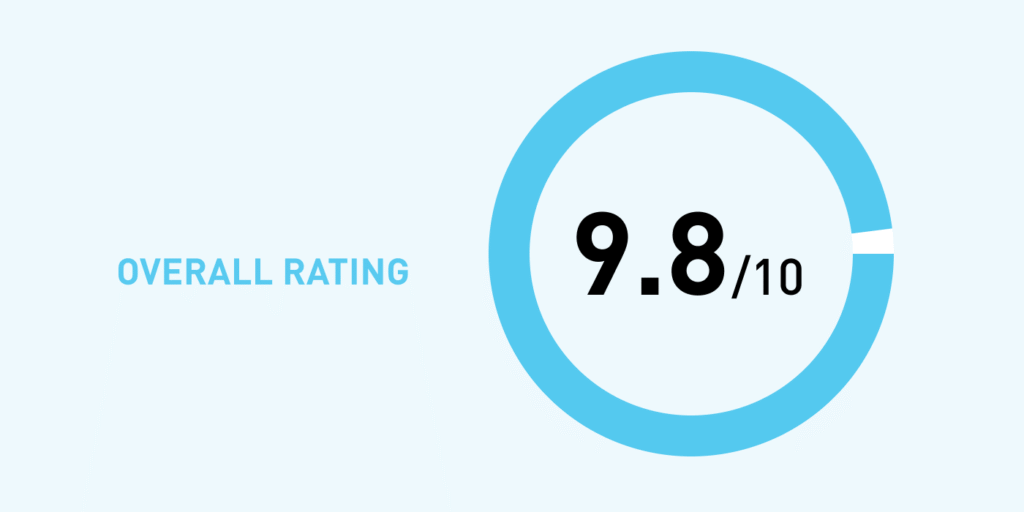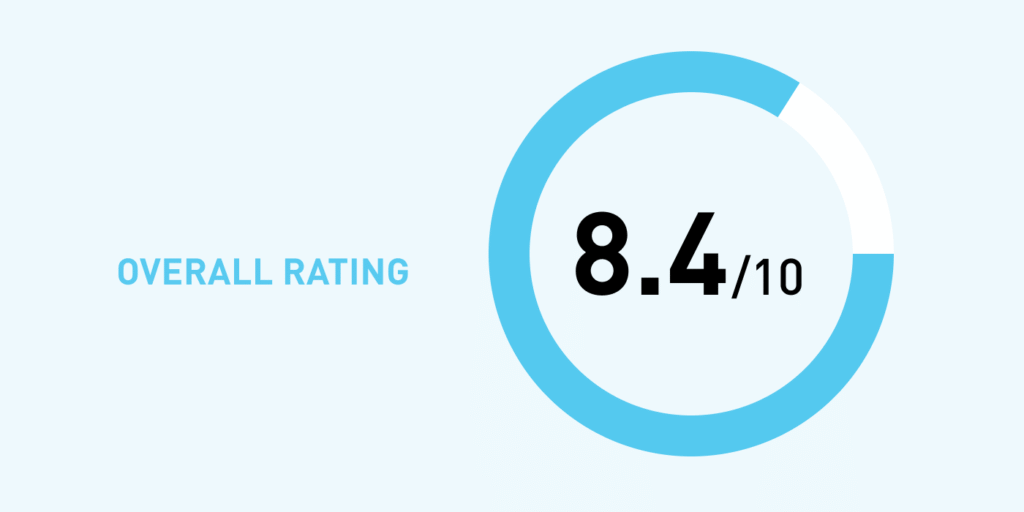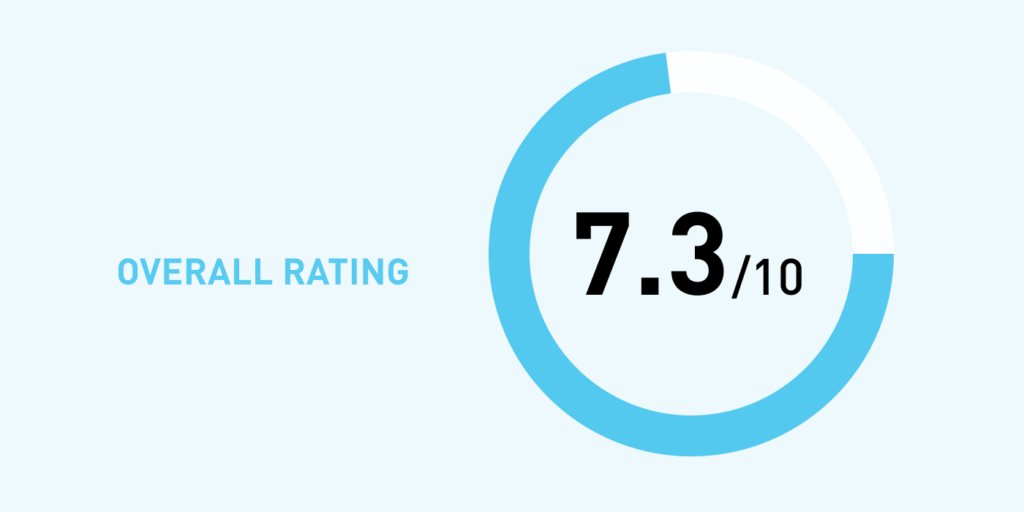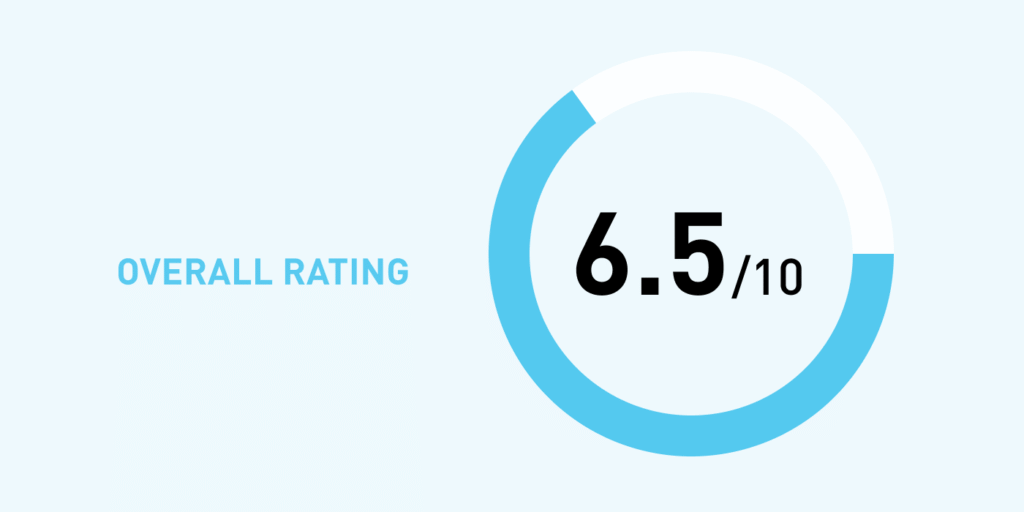Advertisement

Are you tossing and turning night after night, struggling to get the rest you need? You’re not alone. For millions, quality sleep has become something of a luxury. While many turn to over-the-counter sleep aids with potentially concerning side effects, nature provides a gentler alternative: magnesium. For this reason, we’ve tested a variety of magnesium supplements for you and discovered which ones are currently the best-selling on the market.
In this article, you’ll also discover how magnesium can support sleep health, learn interesting facts, common myths and features that help you recognize a high-quality magnesium product.
What is magnesium and which form is best for sleep?

Magnesium is one of the most important minerals for the human body. This essential trace element is involved in numerous metabolic processes and over 300 enzymatic reactions in our bodies. Despite being absolutely critical for proper bodily function, magnesium isn’t produced internally and must be obtained through diet or supplementation.
Magnesium glycinate (also known as bisglycinate – its technical name) is a highly bioavailable form of magnesium, created by binding magnesium to the amino acid glycine. This combination enhances magnesium absorption and provides the calming properties of glycine, making it particularly effective for supporting relaxation and sleep. Unlike some other forms of magnesium, magnesium glycinate is gentle on the digestive system and less likely to cause gastrointestinal discomfort.
Supports Sleep Quality
Magnesium plays a pivotal role in regulating neurotransmitters involved in sleep, such as gamma-aminobutyric acid (GABA). By enhancing GABA activity, magnesium glycinate promotes relaxation and facilitates the onset of sleep. Studies have shown that magnesium supplementation can improve sleep efficiency, increase sleep time, and reduce nighttime awakenings (1).
Reduces Stress and Anxiety
The glycine component of magnesium glycinate has been noted for its calming effects on the brain, which can help alleviate stress and anxiety – common culprits of sleep disturbances. Additionally, magnesium plays a crucial role in regulating the body’s stress-response system. Research in the Nutrients journal demonstrated that magnesium could help reduce cortisol, the body’s primary stress hormone (2). By moderating the stress response and combining the relaxing properties of both magnesium and glycine, magnesium glycinate creates optimal conditions for a more restful night’s sleep.
Reduces Insomnia Symptoms
Insomnia affects approximately 30% of adults worldwide. A randomized clinical trial in the Journal of Research in Medical Sciences showed that magnesium supplementation helped reduce the severity of insomnia and improved various sleep parameters. Participants reported falling asleep faster and experiencing fewer nighttime awakenings (3).
Breaking common myths about magnesium and sleep

Myth 1: All forms of magnesium are equally effective for sleep
Available dietary supplements consist of various magnesium compounds, some of which are absorbed by the body with varying degrees of success. When it comes to sleep specifically, not all forms are created equal.
Forms like magnesium glycinate are particularly effective for sleep due to their superior bioavailability and the additional calming effects of glycine, the amino acid it’s bound to, while others (e.g., magnesium oxide or citrate) may cause digestive issues.
Myth 2: Magnesium’s sleep benefits are immediate
While some people might notice subtle improvements within days, most will need consistent supplementation for weeks before experiencing significant sleep benefits. Your personal response time depends on several factors: how deficient you were to begin with, your overall diet, stress levels, and individual body chemistry. If you don’t notice immediate results, don’t give up too quickly – magnesium works best as a long-term solution for better sleep quality rather than as a quick fix (4).
Myth 3: Magnesium only helps if taken at night
Many people think they need to take magnesium right before bed to get sleep benefits. But that’s not quite true. Magnesium works throughout the day to support the body’s relaxation response by activating the parasympathetic nervous system. You can take it in the morning or afternoon to help manage daily stress and muscle tension, which indirectly improves sleep quality. The sleep benefits come from having good magnesium levels overall, not just from taking it as a “sleep pill” at bedtime. So while evening doses can help, don’t feel limited to nighttime-only supplementation.
Facts about magnesium that you may not yet know

Fact 1: Magnesium influences over 300 enzymatic reactions
Magnesium is often associated primarily with muscle function, but what’s less well known is that magnesium influences over 300 enzymatic reactions in our body. Many of these reactions affect sleep-wake cycles, stress response, and the production of sleep-related neurotransmitters.
Fact 2: Magnesium deficiency is surprisingly common
Unfortunately, magnesium deficiency is not nearly as rare as is often claimed. Scientists even speak of it as a worldwide and under-recognized problem with significant health implications – with the majority of people in modern societies at risk for magnesium deficiency. Our stress-filled lifestyles deplete magnesium stores, and studies suggest that a substantial percentage of the population may have suboptimal levels. Since magnesium plays an important role in sleep regulation, this deficiency can impact sleep quality (5).
Fact 3: Magnesium reduces daytime sleepiness
Better sleep at night means more energy during the day. A 2018 study found that women with higher magnesium intake had an impressive 88% lower risk of experiencing daytime drowsiness. The mineral’s natural muscle-relaxing properties may help prevent leg cramps and muscle spasms that commonly interrupt sleep cycles (6).
How to choose a high-quality magnesium supplement for sleep
If you decide to purchase a magnesium supplement for better sleep, make sure you choose one that’s particularly high quality. When selecting a magnesium supplement specifically for sleep improvement, look for:
- Sufficiently high dosage (around 300mg of elemental magnesium)
- Contains magnesium glycinate/bisglycinate
- Certified production processes
- High bioactivity and bioavailability of the ingredients
- No chemical additives or fillers
- Free from allergens such as soy, lactose, gluten, and yeast
- Capsule form
The best magnesium products for better sleep: How different forms perform
To help you make your final purchase decision, we have put a variety of magnesium supplements through their paces. Our informative ranking of the best magnesium-containing supplements for sleep uses numerous factors that have revealed clear differences between products. We carefully evaluated factors such as bioavailability, form, purity, dosage, and of course customer satisfaction to determine which supplements truly deliver on their sleep-supporting promises.
1st place: Vitality Nutritionals Magnesium Glycinate 300


ADVANTAGES
- High dosage with 300 mg of elemental magnesium per daily dose
- Highly bioavailable magnesium glycinate form
- Very well tolerated even by sensitive individuals
- Free from unnecessary additives and allergens
- Suitable for vegans and vegetarians
- 100-day money-back guarantee
- Manufactured in the EU according to HACCP and GMP standards
- Ideal capsule form for easy consumption
- Excellent customer service and transparent communication
- Scientifically supported benefits confirmed by EFSA
DISADVANTAGES
- Often sold out due to high demand
CONCLUSION
Vitality Nutritionals Magnesium Glycinate 300 stands out as the clear winner in our comparison, offering an optimal combination of quality, effectiveness, and value. The highly bioavailable glycinate form ensures maximum absorption with minimal digestive discomfort, making it perfect for sleep improvement.
With its rigorous quality control, pharmaceutical-grade ingredients, and the 100-day money-back guarantee, this product demonstrates why it consistently receives excellent customer feedback; It meets all the criteria we expect from a high-quality magnesium supplement. It’s a truly exceptional product that makes it well worth the investment for anyone serious about improving their sleep quality.
2nd place: Sensilab Essentials Magnesium Glycinate


ADVANTAGES
- High dose with 750 mg magnesium bisglycinate
- Excellent bioavailability and tolerability
- 20% elemental magnesium content (150 mg per capsule)
- Free from allergens and artificial additives
- Suitable for vegans and vegetarians
- Produced in EU under GMP quality standards
- Third-party tested for quality assurance
DISADVANTAGES
- Contains additional binding agents like coconut milk powder
- Shorter money-back guarantee
CONCLUSION
Sensilab’s Essentials Magnesium Glycinate offers a 750 mg high-dose formula with great bioavailability, making it a strong contender for sleep improvement. The product’s rigorous third-party testing and EU production under GMP standards ensure consistent quality and safety. However, the inclusion of additional binding agents like coconut milk powder may concern those seeking the purest magnesium supplementation, and the shorter money-back guarantee offers less reassurance compared to premium alternatives.
Despite these considerations, the product’s strong elemental magnesium content and allergen-free formulation make it a reliable choice for effective sleep support.
3rd place: Vitality Nutritionals Magnesium Glycinate Powder

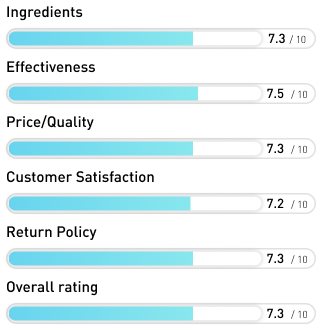
ADVANTAGES
- High daily dosage with 400 mg of elemental magnesium
- 100% pure magnesium bisglycinate with no fillers
- Individual dosage possible through powder form
- Free from all allergens and additives
- Manufactured according to HACCP and GMP standards
- 100-day money-back guarantee
DISADVANTAGES
- Requires measuring and mixing before consumption
- Taste may be unpleasant for some users
- Not as portable as capsule options
CONCLUSION
Coming in third place, another product from the brand Vitality Nutritionals, Magnesium Glycinate Powder offers excellent quality. The formula provides a higher elemental magnesium content per serving (400mg), which may benefit those needing stronger support. However, the product doesn’t come in capsules form, but powder, which is not as portable and has the need to measure and mix, making it less convenient than capsule options, especially when traveling.
Despite these drawbacks, the product’s exceptional purity and the company’s commitment to quality make it a good alternative for those who prefer powder supplements or have difficulty swallowing capsules.
4th place: Solgar Chelated Magnesium

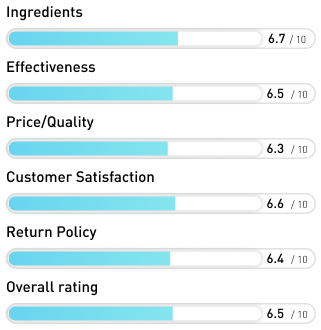
ADVANTAGES
- Contains chelated magnesium for enhanced absorption
- Suitable for vegans, vegetarians, and kosher diets
- Available in convenient tablet form
- Non-GMO and gluten-free formulation
DISADVANTAGES
- Requires 4 capsules daily for full dosage
- Contains multiple unnecessary additives including microcrystalline cellulose and silica
- Mixed magnesium forms reduce optimal bioavailability
- Lower elemental magnesium content than competitors
CONCLUSION
Solgar’s Chelated Magnesium represents a more traditional approach to magnesium supplementation, with a decent 400mg elemental magnesium content in a non-GMO, gluten-free formulation that’s accessible to vegans and vegetarians alike. Despite providing some chelated benefits, the mixed magnesium forms don’t match the targeted effectiveness of pure glycinate formulations. The recommended dosage of 4 capsules daily and the inclusion of multiple additives like microcrystalline cellulose and carnauba wax make it less appealing for optimal sleep support.
For consumers seeking an effective magnesium supplement for sleep improvement, it’s an alternative in the market, but the other options in our comparison offer better quality, value, and effectiveness.
Sources
- Abbasi, B., Kimiagar, M., Sadeghniiat, K., Shirazi, M. M., Hedayati, M., & Rashidkhani, B. (2012). The effect of magnesium supplementation on primary insomnia in elderly: A double-blind randomized clinical trial. Journal of Research in Medical Sciences: The Official Journal of Isfahan University of Medical Sciences, 17(12), 1161–1169.
- Boyle NB, et al. (2017). The Effects of Magnesium Supplementation on Subjective Anxiety and Stress – A Systematic Review. Nutrients, 9(5):429.
- Abbasi, B., Kimiagar, M., Sadeghniiat, K., Shirazi, M. M., Hedayati, M., & Rashidkhani, B. (2012). The effect of magnesium supplementation on primary insomnia in elderly: A double-blind randomized clinical trial. Journal of Research in Medical Sciences, 17(12), 1161–1169.
- WebMD. (n.d.). Magnesium glycinate for sleep: Benefits and side effects. WebMD. Retrieved from https://www.webmd.com/sleep-disorders/features/magnesium-glycinate-sleep
- DiNicolantonio, J. J., O’Keefe, J. H., & Wilson, W. (2018). Subclinical magnesium deficiency: a principal driver of cardiovascular disease and a public health crisis. Open Heart, 5(1), e000668. https://doi.org/10.1136/openhrt-2017-000668
- Wang, J., Umegaki, H., Imamura, T., & Zhang, Y. (2018). Dietary magnesium intake and sleep disorder symptoms: Findings from the Jiangsu Nutrition Study of Chinese adults. Nutrients, 10(11), 1717. https://doi.org/10.3390/nu10111717


